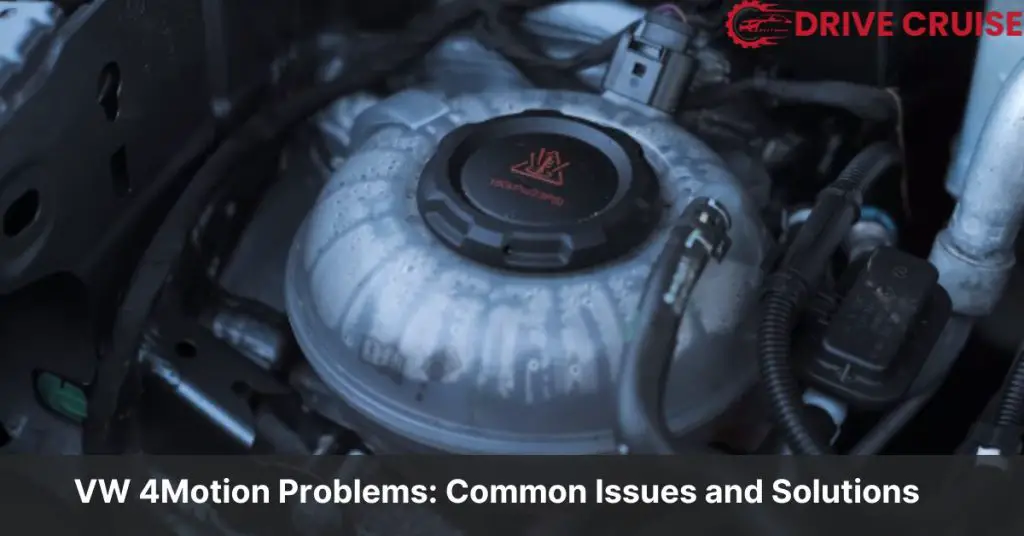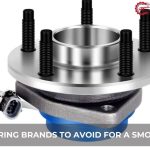If you’re a Volkswagen owner, you’re likely familiar with the brand’s 4Motion all-wheel-drive system. This advanced technology provides exceptional traction and handling, making it a popular choice for drivers who need to navigate challenging terrain or adverse weather conditions. However, even the best systems can encounter problems, and VW 4Motion is no exception.
In this article, we’ll take a closer look at common VW 4Motion problems and what you can do to address them. From issues with the timing chain tensioner to premature water pump failure, we’ll explore the symptoms of these problems and what causes them. We’ll also provide potential solutions and preventative measures so that you can keep your 4Motion system running smoothly and safely.
Demystifying the System: Understanding Common 4Motion Configurations
Before delving into the common problems with VW 4Motion systems, it’s important to understand the different configurations used in VW vehicles. There are two primary 4Motion systems used in VW vehicles: the Haldex Clutch System and the Torsen Differential System.
Haldex Clutch System
The Haldex Clutch System is a widely used system that employs a hydraulically actuated clutch to distribute torque between the front and rear axles based on driving conditions. This system is commonly found in VW vehicles, including the Golf, Tiguan, and Atlas.
One potential issue with early Haldex generations is that they may be more prone to certain issues compared to newer iterations. However, most of these issues can be resolved with regular maintenance and proper care.
Torsen Differential System
The Torsen Differential System, on the other hand, utilizes a mechanical differential to distribute torque proactively, offering a more permanent AWD feel. This system is typically found in higher-end VW vehicles, such as the Golf R and the Arteon.
Compared to Haldex systems, issues with Torsen differentials are typically less frequent. However, it’s still important to keep up with regular maintenance and address any issues promptly to prevent more serious problems down the line.
Understanding the differences between these two common 4Motion configurations can help you better identify potential issues with your VW vehicle and ensure that it receives the proper care and maintenance it needs to perform at its best.
Common VW 4Motion Problems: Symptoms and Potential Causes
Let’s explore some of the most common VW 4Motion problems and their potential causes.
Warning Light Illumination
If you notice a malfunction indicator light (MIL) on your dashboard, accompanied by an AWD warning light, it could indicate various issues. Faulty sensors, electrical problems within the 4Motion control unit, or mechanical issues within the system itself could be the potential culprits.
Lack of Power Delivery or Binding When Turning
If your VW 4Motion hesitates or exhibits a lack of power delivery during acceleration, or if you experience binding sensations while turning at low speeds, it could be due to worn or damaged Haldex clutch components, low hydraulic fluid level in Haldex systems, or issues with the differential (in Torsen systems).
Differences in Wheel Speed or Unusual Noises
Uneven tire wear, slight variations in wheel speeds while driving, or unusual grinding or clunking noises could be present if there are problems with your VW 4Motion. This could indicate failing wheel speed sensors, worn differential components, or a failing Haldex pump in Haldex systems.
Diagnosis and Solutions: Addressing VW 4Motion Problems
If you own a VW with the 4Motion system, you might encounter some issues that could affect your driving experience. Some of the most common issues include loss of power to the wheels, excessive vibration, and noises. If you experience any of these symptoms, prompt diagnosis and repair by a qualified VW technician are crucial.
Importance of Professional Diagnosis
Due to the complexity of the 4Motion system, a qualified VW technician with access to specialized diagnostic tools is recommended for accurate diagnosis and repair. A professional diagnosis is essential to identify the root cause of the problem and avoid unnecessary repairs or replacements. An experienced technician can also provide you with valuable advice on how to prevent future issues and maintain your VW’s 4Motion system in top condition.
Potential Solutions
Depending on the diagnosed issue, solutions might range from replacing faulty sensors or topping up low fluid levels to servicing or replacing the Haldex clutch or differential components. In some cases, a software update might be necessary to fix the problem. It’s important to note that DIY repairs or unqualified technicians might cause further damage to your VW’s 4Motion system, leading to more costly repairs in the long run.
To prevent potential issues, regular maintenance and inspections are recommended. This includes checking fluid levels, inspecting the axles and joints, and replacing worn-out components as needed. By taking care of your VW’s 4Motion system, you can ensure a smooth and safe driving experience for years to come.
Preventative Maintenance: Optimizing Your VW 4Motion System
To ensure your VW 4Motion system stays in top shape, it’s important to follow a regular maintenance schedule, keep up with fluid maintenance, and adjust driving habits accordingly.
Regular Maintenance Schedule
Adhering to VW’s recommended maintenance schedule for your specific model and 4Motion system is vital. This includes regular fluid changes, inspections, and software updates (if applicable). It’s important to keep in mind that neglecting routine maintenance can lead to costly repairs down the road.
Fluid Maintenance
For Haldex systems, following the manufacturer’s recommended service intervals for changing the 4Motion clutch fluid is crucial. This fluid helps transfer power to the rear wheels, so maintaining it at the proper level and condition is important. It’s recommended to have this fluid changed every 30,000 miles or every three years, whichever comes first.
Driving Habits
Avoiding excessive wear and tear by limiting aggressive driving or towing beyond the vehicle’s capacity can help maintain the 4Motion system’s health. It’s also important to avoid spinning your wheels excessively, as this can cause unnecessary stress on the system. Additionally, if you live in an area with harsh winter conditions, using winter tires can help reduce stress on the system and improve overall performance.
Conclusion: Confidence on Every Road with a Healthy VW 4Motion System
Maintaining a healthy VW 4Motion system is crucial to ensure optimal performance, safety, and confidence on all road conditions. By understanding common VW 4Motion problems and their potential solutions, you can take preventative measures to keep your AWD system in top shape.
One of the most common problems with the VW 4Motion system is transmission issues. Some owners experience more difficulties in shifting and changing gears than expected. Similarly, premature wear of transmission components is another issue. Regular maintenance and timely repairs can help prevent these issues from occurring.
Another issue that may arise with the VW 4Motion system is with the electrohydraulic clutch pack that engages the all-wheel-drive coupling. If this component fails, it can lead to a loss of power to the rear wheels, resulting in poor traction and handling. Regular inspections and replacements can help prevent this issue from occurring.
By taking care of your VW 4Motion system, you can enjoy the confidence of knowing that your vehicle is ready to handle any road condition. With its advanced all-wheel-drive technology, the VW 4Motion system is designed to provide optimal traction and handling in all weather conditions. So, keep your VW 4Motion system healthy, and enjoy the ride!

















